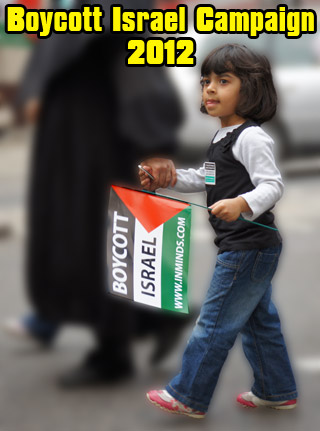
 Innovative Minds © 2014. All Rights Reserved. www.inminds.co.uk | ||||
|
Comment: A sign of desperation and moral bankruptcy - when there is nothing left to attract people to Israel, the Israeli consulate, shamelessly, in a pathetic last ditch attempt has decided to parade Israeli women half-naked in mens magazines in the hope to attractng a few perverts/tourists to Israel.. pimping for zionism.. what next? Girls - Israel's racy new PR strategyKevin Peraino, Newsweek
Israel's real PR problem is that Americans, particularly men aged 18 to 35, either associate the country with war or holy relics, or don't think of it at all. We have to find the right hook, and what's relevant to men under 35? Good-looking women.
Israeli Consul of Media and Public Affairs David Saranga, approached mens magazine Maxim to help remake the Jewish state's public image. Jim Malucci has two tattoos, one on each bulging bicep. On the left one, the photographer for Maxim magazine has etched an image of a seductively dressed pinup; on the right, he has stenciled the words GO WITH GOD in Portuguese. He leans on his left arm and points his camera at a model in a bikini on the Tel Aviv beachfront. "That's hot, that's wicked," says Malucci, as the model shifts her hips and parts her lips. "I wanna see the curves. That's it, honey. On your knees, legs apart. Nice arch in your backâboom!" The flash flickers as the sun drops toward the Mediterranean. A Hassidic man in a black hat accidentally steps into the frame. "Love the guy with the hat!" Malucci says, chortling. Taking in the scene, David Saranga can't help but grin. The Israeli consular official based in New York approached Maxim six months ago. His proposal: the government and other pro-Israeli groups would fly a camera crew across the Atlantic in an effort to remake the Jewish state's public image. Israel's reputation had suffered after last summer's war with Lebanon; in a recent BBC poll taken in 27 countries, 56 percent of respondents considered Israel a "negative influence" in the world, higher than both Iran and the United States. But Israel's real PR problem, according to Saranga, is that Americansâparticularly men aged 18 to 35âeither associate the country with war or holy relics, or don't think of it at all. "We have to find the right hook," he says. "And what's relevant to men under 35? Good-looking women."
Tourism is a nearly $2 billion-a-year industry in Israel.
Saranga's effort is the latest volley in a long-running battle over how to sell Israel to the world. Tourism is a nearly $2 billion-a-year industry in Israel, and the art of public relations is something of a national obsession. In Hebrew it's called hasbarah, which means "explaining." For a country that's always craved international acceptance, hasbarah was "the first growth industry of Israel," the American author Richard Ben Cramer wrote. "We almost have a psychological disorder when it comes to public image," adds Eytan Schwartz, the first winner of Israel's top-rated reality TV show, "The Ambassador." Schwartz's prize is proof of that: the winner of "The Ambassador" gets to become a public-relations flack.
In a recent BBC poll taken in 27 countries, 56% of respondents considered Israel a "negative influence" in the world, higher than both Iran and the United States.
Still, by definition, hasbarah is open to interpretation. One of the central dilemmas is which aspects of Israel's wildly diverse society to emphasize. Israelis disagree about which is more likely to appeal to AmericansâTel Aviv's freewheeling, secular charms, or Jerusalem's holy sites. Settler leader Benny Elon, a former tourism minister, says he considers ads touting Israel's beaches a waste of money. For Elon, it isn't only a cultural issue; it's also bad business. Tourists in search of sunshine will always favor the French Riviera or the Caribbean. Israel's "unique selling proposition" is its religious heritage, says Elon. "It's the only state where you can take the Bible as your tourism guide." A recent study by the consulting firm Ernst & Young recommends that the Jewish state target American evangelical Christian touristsâone of Elon's pet projects.
A recent study by the New York marketing firm Wunderman has concluded that Israel's "brand" is perceived similarly to that of Philip Morris [tobacco giant whos products are blamed for killing over 75,000[1] Americans every year].
Yet trying too hard to lure Christian tourists could end up alienating secular liberals. "Benny Elon is just dead wrong," says Harvard Law School professor Alan Dershowitz, author of "The Case for Israel." "It puts Israel in the camp of arch-conservative people." Already, a recent study by the New York marketing firm Wunderman has concluded that Israel's "brand" is perceived similarly to those of Philip Morris and the NRA. Ultimately evangelicals' support for Israeli tourism will evaporate, says Dershowitz; Christians will eventually become "disappointed" with the Jewish state as their interests diverge. But even Dershowitz thinks the idea of paying to fly a magazine crew across the Atlantic is a little over the top: "Completely not the way to go. I can see models anywhere." Saranga insists his campaign is just smart niche marketing. "You have to match the message to the audience," the diplomat says. And his supporters argue that the Jewish state's diversity is one of its strongest selling points. Ultimately, says Dershowitz, "Israel is both countries ... a country where models pose at great holy sites." The tattoos on shooter Jim Malucci's biceps make the balance look easy to find. But marketing budgets are finite, and cultural rifts aren't so easily bridged. The reality of Israel is often having to choose: go with the girl, or go with God.
[1]"It's [Philip Morris] Marlboro brand alone (the world's best selling brand) was estimated to have killed 75,000 Americans in one year." - http://www.mcspotlight.org/beyond/companies/pmorris.html Beautiful IsraelIsraeli Consulate General in New York convinces Maxim men's magazine to take photo shoot of Israeli models as part of campaign to change Israel's image, attract touristsItamar Eichner, Yediot Aharonot (Ynetnews) The Israeli Consulate in New York has come up with an ingenious idea to promote tourism to Israel in the United States: officials there have managed to twist the arms of the most popular US men's magazine, Maxim, to write a feature about stunning Israeli models. The idea came about when Israeli officials read that public opinion studies about Israel's image in the US found that the average American knew three things about their tiny country: war hotspot, stubborn people, and beautiful women. The Foreign Ministry asked its delegates in New York to come up with a project that would encourage American tourists to come to Israel cashing in on the country's reputation for being home to some of the world's most beautiful women. Maxim editors initially rejected a proposal by the Israeli Consulate to cover the personal stories of famous Israeli models, but when the Consulate sent pictures of 12 carefully selected beauty queens, Maxim was quick to acquiesce. Seven out of the 12 Israeli models will feature in the men's magazine: Sharon Markovitch, Natalie Niv, Yarden Harel, Moreyal, Nivit Bash, Tali Hendel and former Miss Israel Gal Gadot. The magazine is sending a team of three top photographers to Israel for a photo shoot of the models at several locations in the center of Israel that will include stops in Yaffo, Neveh Tzedek, the financial center in Ramat Gan, and Tel Aviv beaches. The project includes the production of a video featuring the models which the consulate plans to send to American television broadcasters. "The project aims at attracting young audiences and to stress the beautiful face of Israel," Israeli Consul General in New York Ariyeh Mekel said. David Saranga, the Consul for Media and Public Affairs, said, "A study we conducted taught us that Israel is not relevant to men aged 18 to 34 and the project aims at showing that Israel is a modern, lively, young and dynamic country." The America Israel Friendship League and the Israel21c organization will contribute to the cost of the project. Source: http://www.ynetnews.com/articles/0,7340,L-3380172,00.html Also Of InterestPage URL: http://inminds.com/article.php?id=10085
|
|
Support Us
If you agree with our work then please support us.Campaigns INMINDS Facebook Live Feed Latest Video's
INMINDS Twitter Feed Tweets by @InmindsComFeatured Video's
You need Flash player 8+ and JavaScript enabled to view this video.
[all videos (over 200)..] Featured MP3 Podcast  "For most journalists, whether they realize it or not, are groomed to be tribunes of an ideology that regards itself as non-ideological, that presents itself as the natural center, the very fulcrum of modern life. This may very well be the most powerful and dangerous ideology we have ever known because it is open-ended. This is liberalism." Campaigning Journalist and Film-maker Socialism 2007 Conference, Chicago [43min / 21Mb] [all podcasts..] Newsletter Feedback |
 |
 |
















































